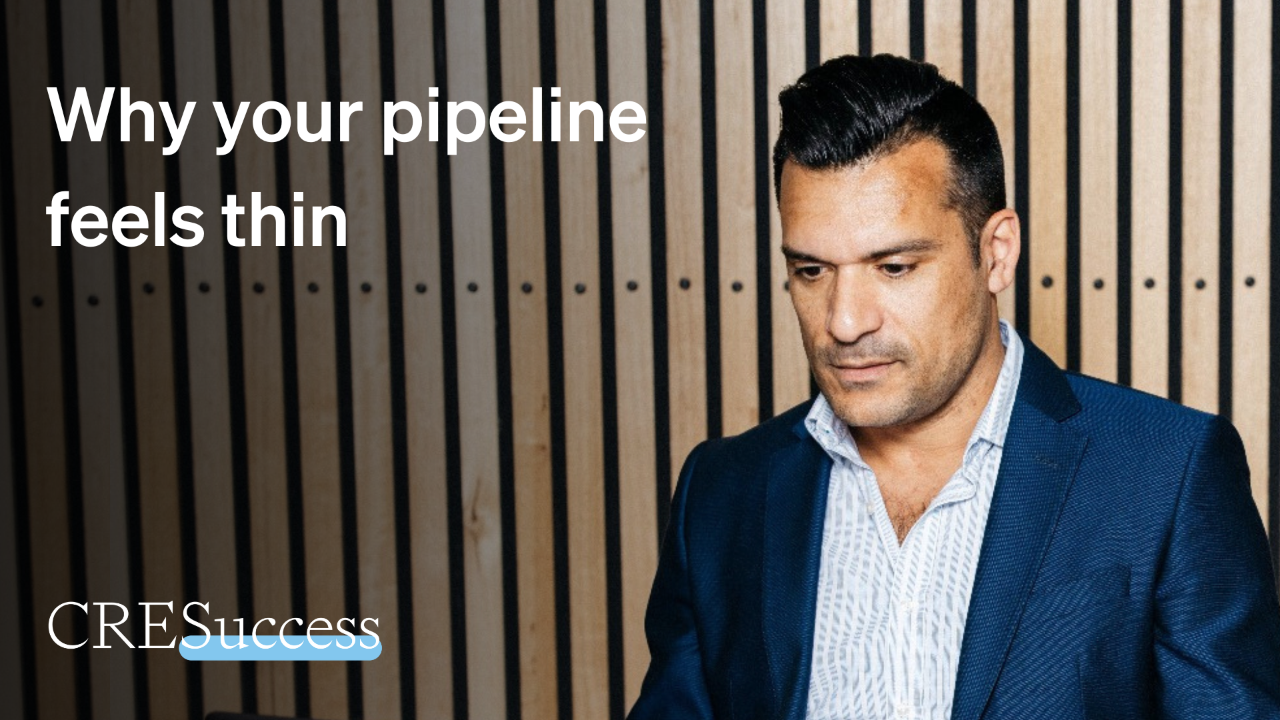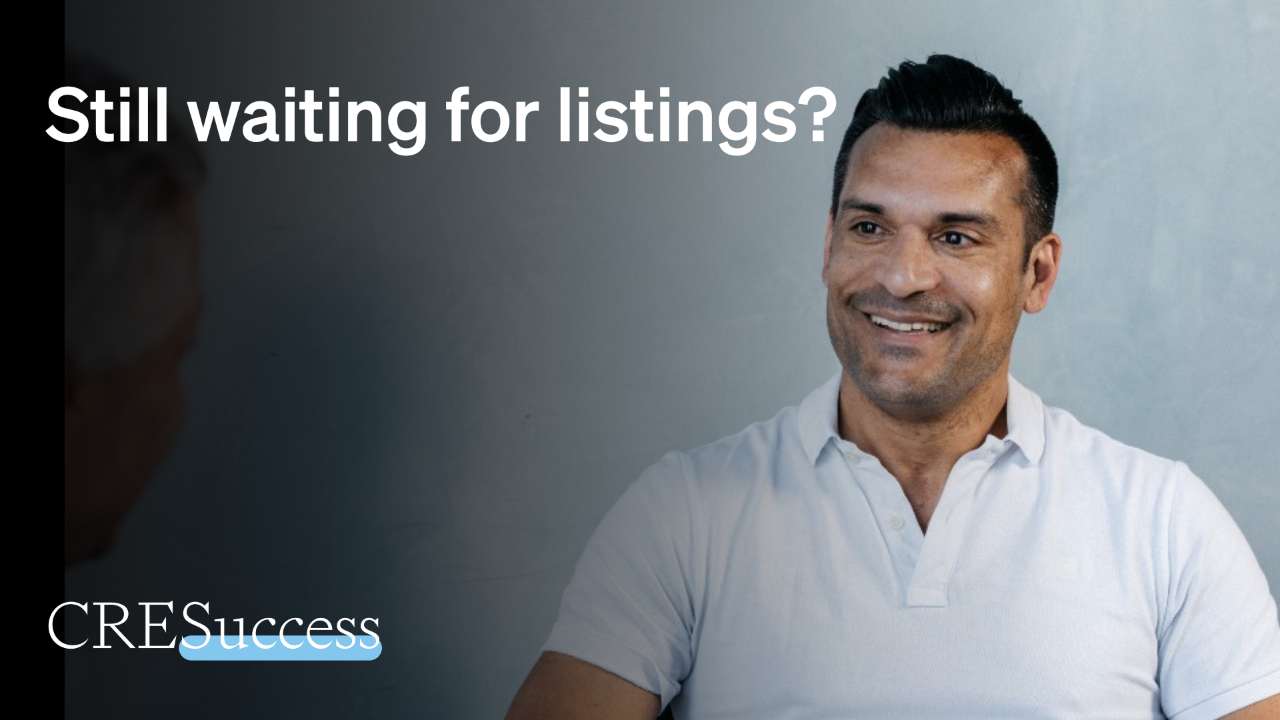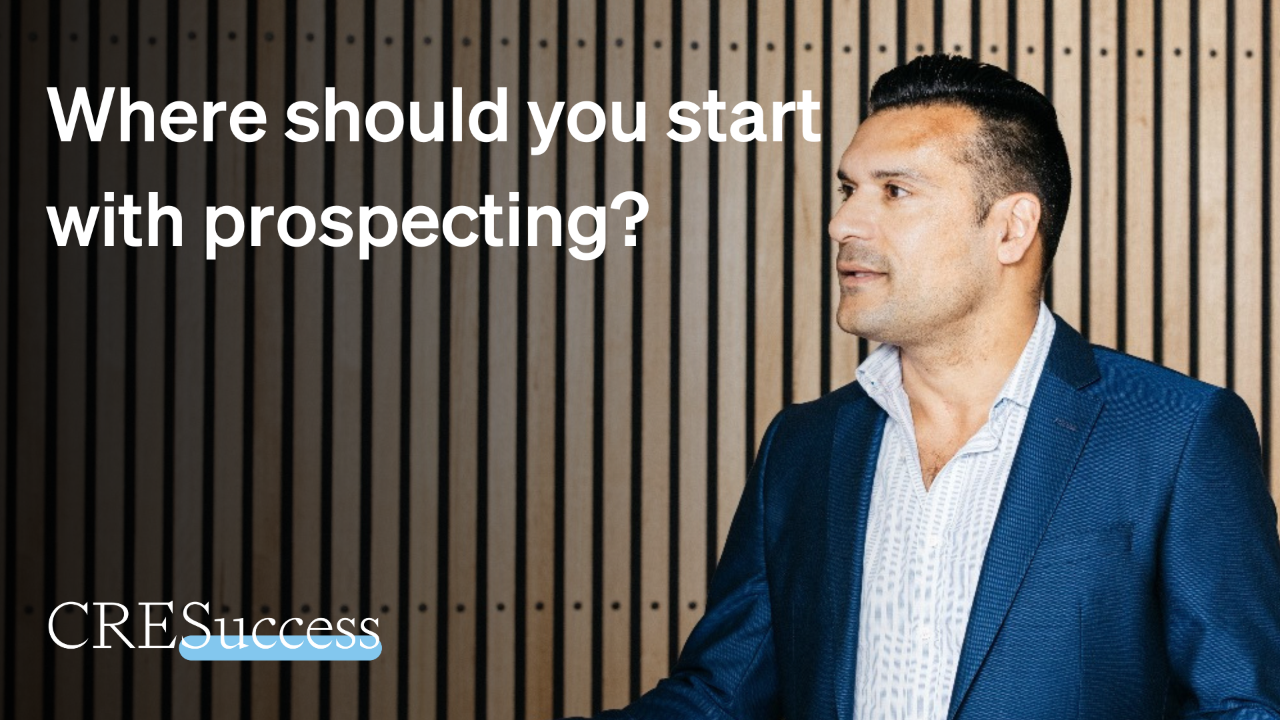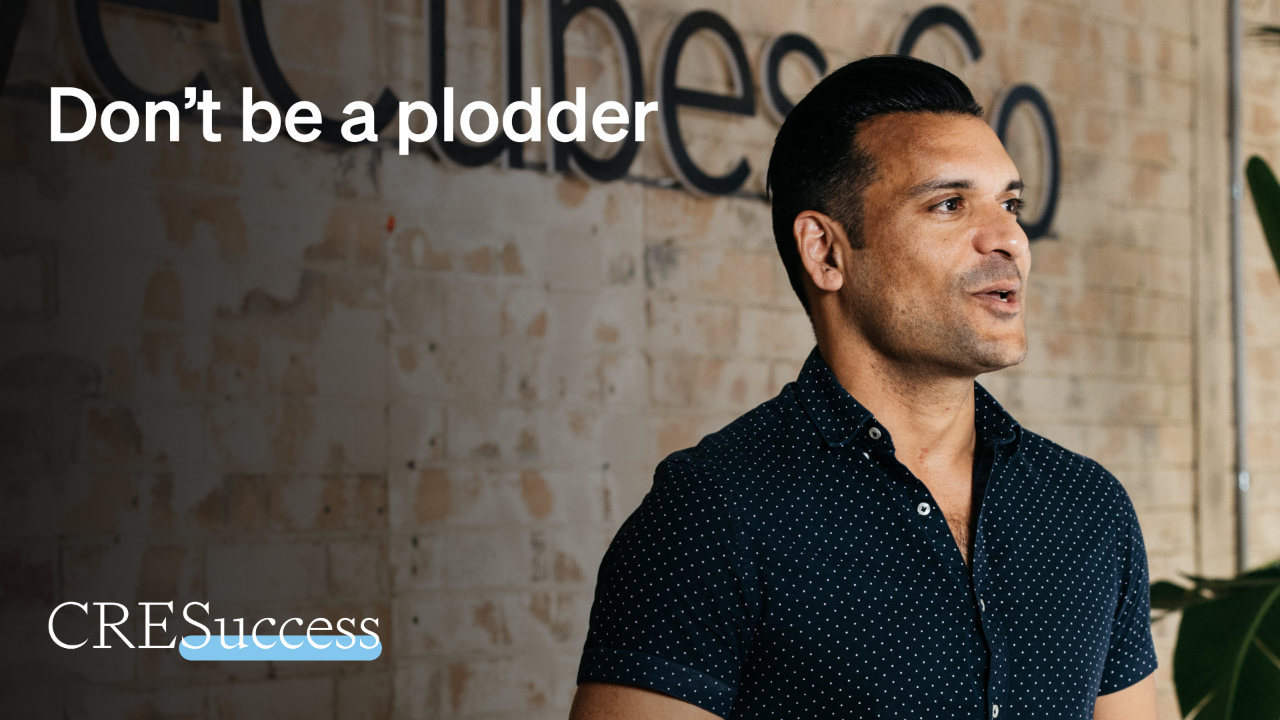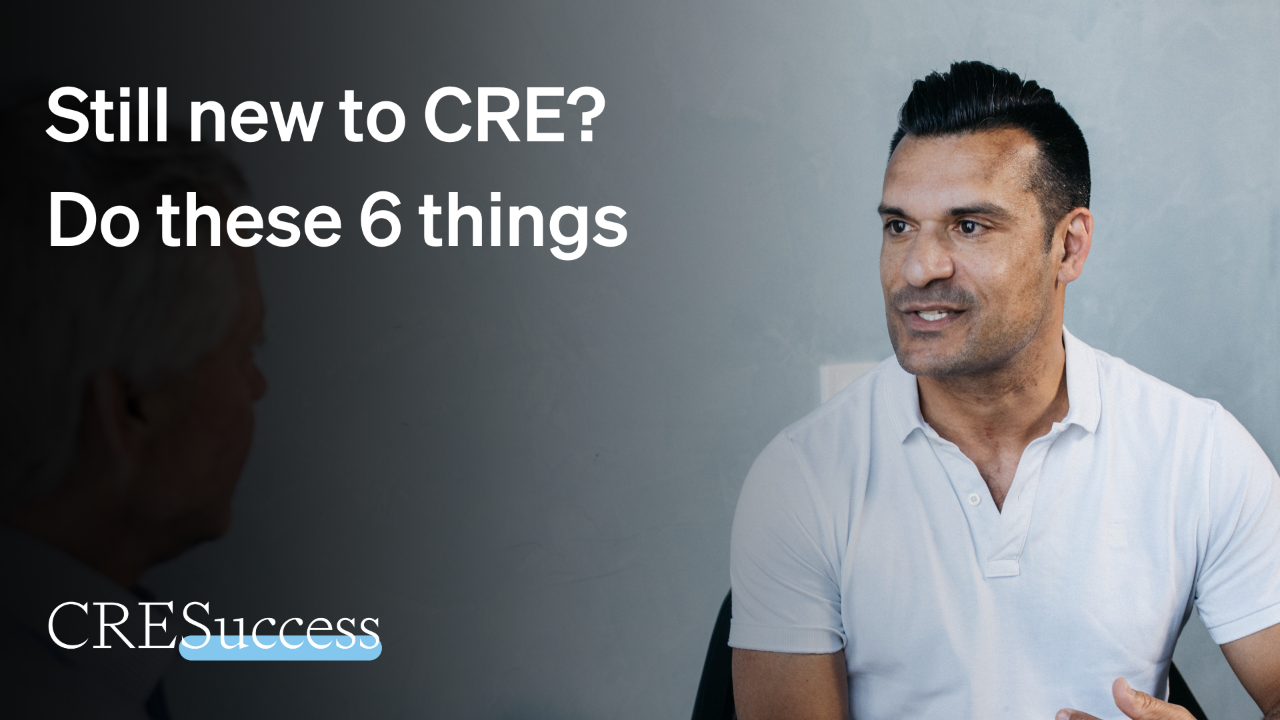Stop hustling your face off!
Oct 04, 2023
Imagine that you're on a treadmill, running as hard as you possibly can.
You’re exerting a ton of effort, but you’re still not moving anywhere.
That's how it can feel when you’re working hard in your business, and you’re focused on the wrong things.
Because busy doesn't always equal productive.
And working hard without a clear strategy – without time to stop and think – can also lead to burnout and mistakes.
We've all experienced those moments when exhaustion takes over, and our output suffers.
That's when the law of diminishing returns comes into play.
Take a moment to reflect on your work habits…
Are you working hard with little improvement, or are you working on the things that genuinely drive better results?
Let’s prioritise precision and strategic focus over sheer effort and hustling for the sake of it.
For a renewed focus on the things that matter, join me for episode 159 of Commercial Real Estate Leadership.
Episode transcript:
I don't know about you, but when I'm jogging, I don't mind if it's on a treadmill, or if it is outdoors. It doesn't make much of difference for me.
But I know for many people, they don't like the feeling of running on a treadmill.
And I think it's not only the feeling of running on this machine that isn't actually going anywhere. It's also this notion that you are exerting a lot of effort but not actually moving forward.
And I think for some commercial real estate leaders, it can feel like we're exerting all of this effort. We're putting in all of this hard work, but we're not actually moving forward.
And I think the reason that sometimes is happening is because we're equating hard work with results, rather than greater productivity and focusing on the things that matter to get us the results.
So, in today's episode, I want to talk to you about why we need to throw out old notions of working hard and instead focus on working on the right things if we want to achieve superior results in our business.
Hello, and welcome to the show. It's episode 159. I'm Darren Krakowiak.
Really appreciate you joining us for commercial real estate leadership. I'm here to help commercial real estate leaders to get their business growing faster.
I know that you could be putting your time and attention elsewhere. So, I really do appreciate the fact that you've decided to spend this time with us, thank you very much.
I'll do my best to make sure that this is a fantastic return on your time.
And we'll start right off the bat with something that I think could be useful for you.
It's based on this concept of marginal gain. And marginal gain was a concept that in 2012, in the UK, the English Olympic team really went hard on this concept of just making small improvements.
And as a result of the really small improvements that they made; they won seven out of the 10 gold medals that they were chasing.
It's a similar concept in football, it's a game of inches.
And the point I'm trying to make here is that we need to look for the small improvements that can result in multiplied growth in your commercial real estate business.
And that's what our guide multiplied growth does.
One of the things that we're talking about in this guide is the power of 5%. It's going to show you the magic of improving just a few key business metrics by only 5%. And as a result, you can watch your agents GCI soar.
We'll also give you videos and spreadsheets which you can use to implement the concepts that we're talking about in the guide in your business in a way that's actually relevant for your commercial real estate business.
If you want to grab this free guide, it's at cresuccess.co/growth. Go there, grab the guide, and start using it to accelerate growth in your business.
In today's episode, we are talking about not working harder, but working smarter and really rethinking the approach to growing your business.
And I think that a lot of the times people conflate working longer hours with getting better results. And that's not always the case, right?
Because I think we need to actually focus more on the efficiency of what we're putting our time into and not just the effort.
The hours that you put into your business are not the biggest determinant of whether the business will succeed.
If you want your business to double in size, that's not going to happen if you double the amount of hours, particularly if there just isn't enough hours left in the day for you to be able to eat and sleep, but also double the amount of time that you're spending in your business.
So busy doesn't always equal productive. And the real dichotomy and might even call it a bit of a tragedy is that many people who start their own business in commercial real estate do so with the goal of achieving freedom.
And they believe that, "Well, if I just work a little bit harder, then I'll get closer to freedom in my business."
But what they're actually doing is, I think training themselves to believe whether it's subconsciously or if they're just not finding new ways to get a result.
They're just continuing to work hard, getting small improvements, but not actually seeing the magnified the multiply growth in their business that they are looking for that will ultimately help them to get to that freedom.
So, productivity, in my opinion, a good definition is getting improved results without increasing your inputs, or increasing the output while actually decreasing your input.
This is a conversation where we're really challenging this age old mantra of you know, 'the only way to succeed is to work hard'.
And I think a lot of us have this belief in our mind. We may have been taught that by our parents or by the first bosses that we've had in the industry.
And we may have also learned that to be the case from some of the early wins that we have had in the industry.
But things change. And if you are a commercial real estate leader, the growth that you want to activate in your business is going to be more about using your brain and less about using brawn.
It's more about working with precision and strategy than just grinding out the hours in order to get the result that you're looking for.
Now, I do want to provide a clarification here. I'm not saying that you shouldn't try your best, I'm not saying that you shouldn't be working hard or putting in the hours.
I'm just saying that if you want to deliver superior results for your clients, for your employees and for your shareholders, that may not involve working hard in the traditional sense.
But rather, it may be about working smarter on the things that are important, because hard work does not automatically equal success.
Now, success without hard work is less common in our industry. But I want you to know that it is increasingly possible due to technology, due to automation, and just due to continuous improvement of individuals and of the industry at large, right?
The improved processes that we have access to now.
I think it's also likely that as you elevate your role, you'll be rewarded for actually doing less, because that's how you create leverage.
So, remember, hard work does not equal success. But also, hard work without success is also quite common.
We know those people who've been working hard all their lives, but aren't getting to where they want to get to.
We want to be working smarter. Now, if you don't believe me, or if you disagree, and you think, "No, I've got to be working 16 hours a day because that is what is going to get me the result that I'm looking for."
I just want to provide you with a concept about the law of diminishing returns.
And this is something that that I learned in university economics, but it also applies to the way that we operate as humans.
And I think that you fall into negative returns when you are just completely fried, your brain is fried, or your body is exhausted.
And then you can actually not only start providing less returns for every unit of output that you are providing for your business, but you can actually start doing harm at some point.
And this happened to me just a few weeks ago. I was physically exhausted from doing some work outside on the pergola we'll putting this cover over the pergola.
So, then I raced back in the house at 5pm. After doing all this, I guess physically exhausting work, and I wanted to do some last-minute emailing and get some stuff done.
And I broke two rules there, right?
First of all, I should have outsourced the installation of that pergola.
And you know what I'm usually the person who does that. And I guess I thought I did, because I got it professionally cut and all of that I didn't try and do that myself.
But given my form of using air tasker, for things as simple as screwing something into a wall, I probably should have also got someone with a bigger ladder that I had around the house to come and just put it up for me.
But anyway, I made that mistake. But also, I made the mistake of doing something that wasn't urgent, but I was doing it in a rushed manner.
And it meant that I ended up sending two emails to the wrong people, which was kind of embarrassing, I made two mistakes in a row.
So, what I'm recommending here is that we spend a little bit of time on being more productive, and that you actually focus on some strategic priorities in your business.
And that's what I do with my clients. We identify, depending on the size of their business, it might be three, or sometimes it's five.
But we identify the things that by doing them, everything else will become unnecessary or much easier.
And once you know what these things are, what those strategic priorities are, you can then implement a plan and also create an implementation strategy or communication strategy as well for your team to help them understand why they're important, but also how to focus on those things.
So how do you identify strategic priorities if you want to do this on your own?
Well, a simple thing that you can do is just undertake a SWOT analysis.
So, a SWOT analysis is strengths, weaknesses, opportunities and threats.
Typically, the strengths and weaknesses are things going on internally. And the opportunities and threats are things going on externally in the marketplace.
Your strengths might be you know, what you do well. The weaknesses might be some things that you lack. The opportunity might be perhaps an untapped potential in the market. And the threats may be, for example, competition that is increasingly coming into your patch.
So, there's some things that you can think about if you want to direct your efforts in a more focused way.
And look, if you are a workaholic and you want to continue working out.
I'm not saying that you shouldn't work hard. I'm just saying, let's get you a little bit more focused with some precision and strategy so you're getting better results for the work that you're putting in.
And a client that I'm working with at the moment when I first started working with them kind of felt overwhelmed and kind of stressed whenever we had our conversations.
And certainly, they're still working those long hours. And there's still some things that they're doing that I would do differently. But their attitude has changed.
I can see that they've got a greater sense of accomplishment.
And also, just a little bit more communist, right? Because I think they have a clearer purpose.
They're seeing more results that comes from focusing their efforts and their energy.
So, my call to action for you today is to have a think about what are the things that are most important for your business so that you can achieve the results that you're looking for, and to reassess the way that you're working.
To have a think about if you're working hard for the sake of hard work. Or if you're working on the things that actually matter.
And if you're working hard for the sake of hard work, but it's on the wrong things, then that's not necessarily going to get you closer to the results that you are looking for.
Hey, I hope you enjoyed today's episode. If you are watching us on YouTube, we'd love it if you could like the video, and also subscribe to this channel.
And if you're listening to us on a podcast, well subscribe to the podcast and also leave us a rating or review on Apple podcasts and Spotify.
I read them all it would mean so much to me. If you can let us know that you're enjoying the show by doing one of those things.
That is our episode for today. Thank you so much for listening, and I will speak to you soon.


